What Time Should You Feed Siberian Huskies
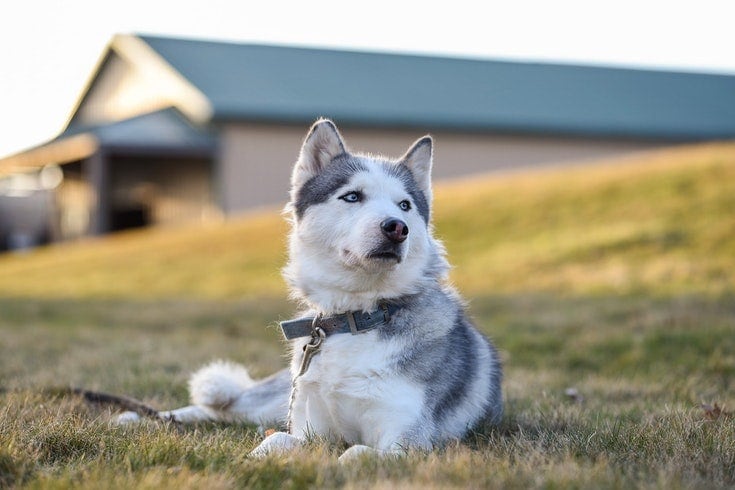
Huskies are one of the most beautiful and head-turning dog breeds on the planet due to their close resemblance to their wolf ancestry. With their striking faces and gorgeous blue eyes, it's easy to see why the breed is so popular. These dogs were bred for pulling sleds through bitterly cold and tough terrain and are still widely used for this purpose today. This makes them a breed with almost unsurpassed stamina and energy and incredible agility.
Huskies are a big responsibility and it can be a challenge to figure out just how much food they need. To help you with the process, we've created this guide to help guide you through your Husky's food needs at their different life stages, as well as other important information on feeding these incredible dogs.

How Much to Feed a Husky Puppy — Husky Feeding Chart
Age of Puppy Quantity of Food Per Day Number of Meals Per Day 2 months 3.5-5.5 ounces 3 3 months 6-7.5 ounces 3 4 months 9-12 ounces 3 5-6 months 12-14 ounces 3 7-8 months 14-16 ounces 2 9-10 months 15-20 ounces 2 10-12 months 18-30 ounces 2
What to Feed My Husky Puppy
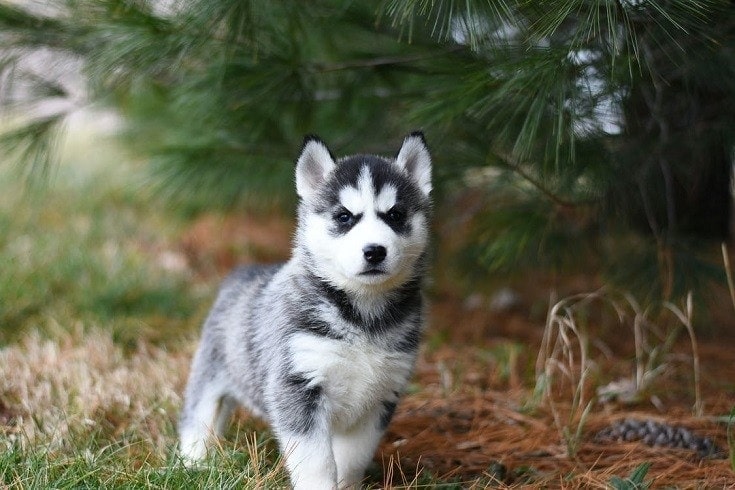
Huskies need food with a high amount of protein, preferably sourced from animals. Plant-based protein sources are not as readily absorbed by your Husky's body and not as good quality. Make sure the food that you give your Husky is nutrient-dense and contains as few filler ingredients—like corn, wheat, and soy—as possible. This is because Huskies do not have the ravenous appetites of many other breeds and need calories that are jam-packed with nutrients. Huskies are far more efficient at burning calories and efficiently using nutrients, so they are accustomed to eating comparatively less food than other dogs their size.
While Huskies can do well on raw and homemade food diets, you need to do extensive research to be sure your dog is getting all the nutrients that they need. This can be a real challenge, and this is why we always recommend going with high-quality commercial food.
Dry kibble contains the essential nutrients that your dog needs in the correct ratios, and it is convenient to store and readily available. Most vets recommend a diet consisting of 80% dry food and 20% wet food or lean meats and organ meats. American Journey makes great dry foods and wet foods for large breeds, and all their food is grain-free.
- Try:6 Best Dog Foods for Husky Puppies 2020
Avoiding Underfeeding & Overfeeding
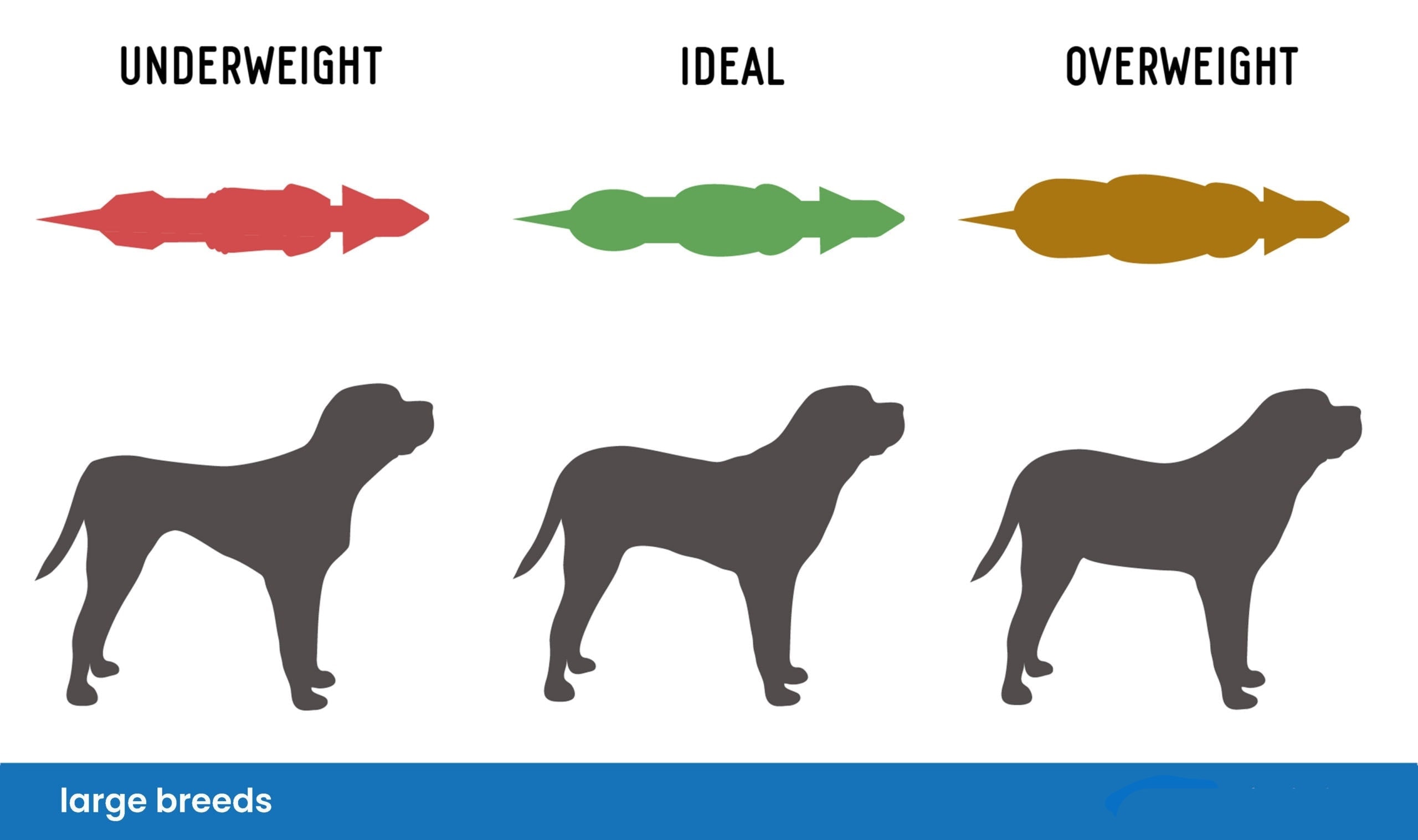
Male Huskies are between 45-60 pounds at a year old and females between 35-55 pounds. They will typically reach their full size at 12 months, but they may fill out and gain more weight in their second year too.
Huskies will grow rapidly from the time you bring them home (8 weeks) until around 4 months, where their growth should begin to slow down and stop at around a year. While all dogs are unique and will gain weight at different rates, your Husky should never look plump and overweight during this first growth stage. Huskies will be fairly lanky and slowly fill out during their first year, so plumpness could be a sign that you are overfeeding them or that their food has unnecessary calories.
Of course, if they appear to be gaining weight too slowly and you can feel their ribs, they may not be getting enough calories overall or the food you are giving them may be lacking in essential nutrients.
When to Switch From Puppy to Adult Food
Huskies are fairly fast-growing and fast-maturing dogs, and you can begin transitioning from puppy food to adult food at around 6 months old, which is near the middle of our Husky feeding chart. Puppy foods are aimed at supporting the rapid growth of your Husky and are packed with extra protein and nutrients. From about 6-12 months, your Husky's growth will begin to slow, and they won't need these extra nutrients. Feeding them puppy food for too long may cause them to become overweight.
The best way to transition your Husky from puppy food to adult formula is to do it slowly. Mix a small amount of adult food into your puppy food and gradually increase it over a couple of weeks. By taking this process slowly, your pooch will be far less likely to have any gastrointestinal issues.
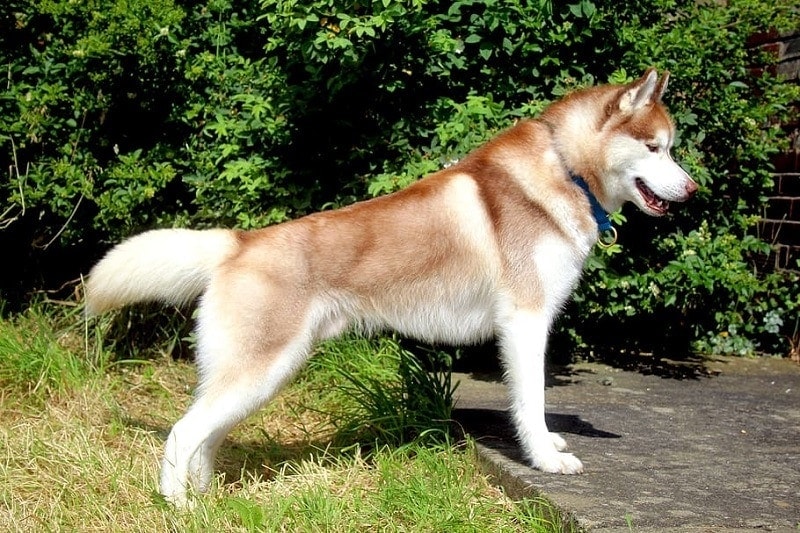
Why Won't My Husky Puppy Eat?
Huskies don't require as much food as other breeds and typically have fairly sensitive stomachs. Of course, they should still be eating regularly, and if you notice a decline in their eating habits, there are a few possible reasons.
- The food you give your Husky may be of poor quality and contain empty, filler ingredients. This may cause issues in their sensitive stomachs and put them off eating.
- Lack of exercise. Huskies are not highly food-motivated animals and tend to only eat when they are hungry. If they are not getting sufficient exercise and burning enough energy, this could easily be causing their lack of appetite.
- Too many treats. Your Husky needs a strict feeding routine, whether they are still having three meals a day or just one or two. If their meals are interspersed with treats throughout the day, they may not feel sufficiently hungry at mealtimes.
- The reason that your Husky is not eating may simply be boredom with their food. Try and add in wet food, lean meats, organ meats, and bones to add variety. You may also need to switch up the food brand that they are currently eating.
If you try all of the above and your pooch is still not eating, there may be an underlying health issue, such as zinc deficiency, and you'll need to go and see the vet.
How Much to Feed an Adult Husky
Huskies will typically eat only until they are full, so if they are leaving food in their bowl after meals, it is a good indication that you may be feeding them too much. When determining how much to feed a husky, we recommend following the food manufacturer's advice but lowering the amount by around 20%. Of course, this depends on the quality of the food and the energy levels and size of your Husky.
- Male Huskies tend to be larger, so they will need slightly more food than females. We recommend around 2 cups per day for males, split into two meals, and around half a cup less for females. If you have a particularly active and energetic Husky, you may need to increase that amount a bit and then adjust accordingly.
- Spayed and neutered Huskies tend to be more docile in general, so you'll likely need to decrease their daily food intake slightly. Of course, all dogs are different, and it depends on how your dog reacts to the procedure. Some Huskies retain their energy level after being neutered and spayed, but as a general rule, they'll typically eat less.
- Pregnant and lactating females will need an increase in food. They are growing puppies, after all, and need the extra nutrition! We recommend increasing their meals from two to three per day and even up to four during the final stages of pregnancy. During nursing, you can increase the portions of each meal and then gradually go back to normal once she begins the weaning process.
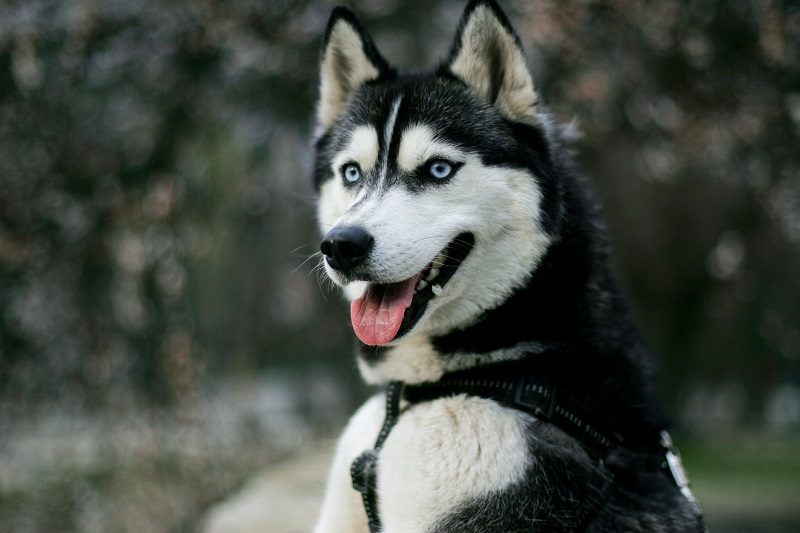
Husky Feeding Guide for Seniors
As your Husky gets older, they tend to be less active and energetic, their metabolism slows down, and they need less food to sustain them. At this stage of their life, they can easily become overweight if their diet is not closely monitored and adjusted, and most vets recommend around a 20% caloric reduction in senior dogs. This is especially true for Huskies that have degenerative issues, like hip dysplasia, that are preventing them from being active.
We highly recommend feeding your senior Husky specially-made commercial foods that are tailored toward senior dogs. These foods typically have more fiber to aid in digestive health, fewer fats, and fewer calories overall. They are also usually loaded with added beneficial vitamins and minerals. Senior dogs will generally need more hydration, so you may want to supplement their dry food with more wet food or lean meats than usual.
We recommend the Active Life Formula Senior dog food from American Journey because it is free from grains and poultry by-products, contains added vitamin A for healthy vision, has glucosamine and chondroitin for joint and mobility support, and has a healthy antioxidant blend to encourage optimum brain function.
Why Is My Husky Always Hungry?
There are a variety of factors that can affect your Husky's appetite. If they are still growing, this is fairly normal behavior, and you may just need to feed them a bit more. The most likely reason for your Husky being hungry all the time is a lack of essential nutrients in their diet, and you may need to consider changing the brand of food that you are feeding them or adding in more nutrient-rich foods.
There also may be an underlying health issue to explain their constant hunger, most commonly worms. Make sure your Husky is dewormed regularly, as worms will cause a rapid increase in their appetite. Another possible reason is over-exercise — although it takes a lot to tire out a Husky! Most Huskies will need around 2-3 hours of exercise a day, and if your pooch is getting more than that, they may be burning up a large amount of energy and require extra calories.
Seasons also make a difference to your dog's appetite, and Huskies may not eat as much in warmer months as they do in winter. While a Husky will generally only eat until they are full, we do not recommend free-feeding them. Your dog needs boundaries, and a scheduled meal is a great way for them to learn a routine. Also, all dogs are unique, and while some Huskies can easily self-regulate, others cannot and will quickly become overweight. If you are out frequently, an automatic dog feeder can keep your pooch on a regular feeding schedule.
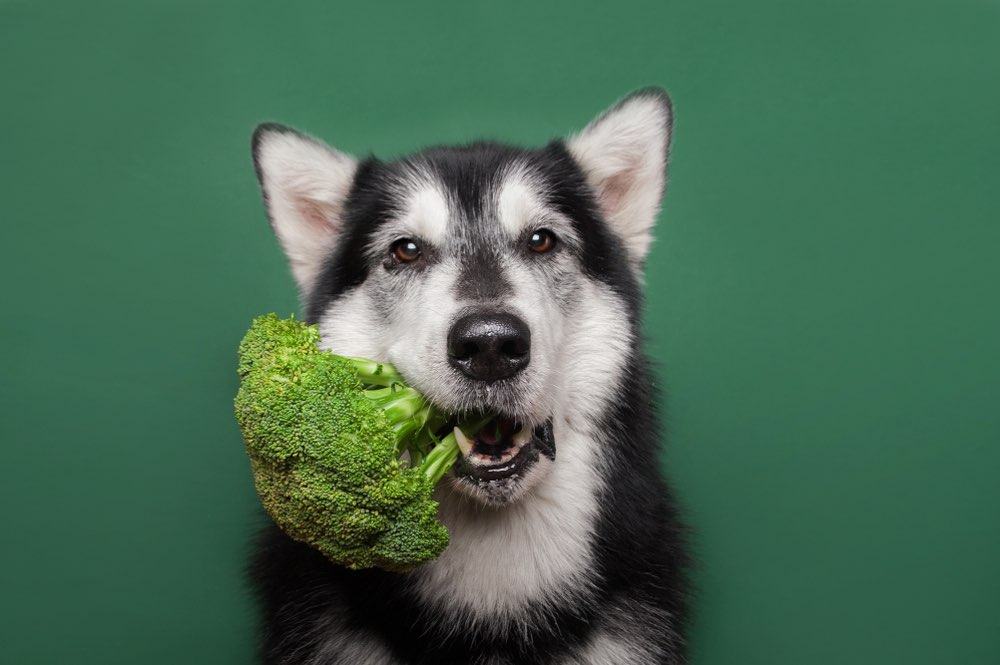
What Foods Are Bad for Huskies?
Like all dogs, there are several foods that you should strictly avoid giving your Husky. Some foods are harmful to your dog, while others can be lethal, so be sure to avoid letting them eat the following:
- Sugar
- Grapes and raisins
- Avocado
- Chocolate
- Onions and garlic
- Excess diary
- Cooked bones
- Caffeine
- Peaches and plums

Conclusion
All dogs, including Huskies, are unique and will require a tailored feeding schedule according to their needs. That said, there are general guidelines and schedules that you can apply to your Husky that will help keep them trim and healthy. Above all, make sure you give them the best-quality, most nutrient-dense food that you can afford, feed them two to three meals a day in the first year, and avoid free-feeding them. All of this will help your Husky live a happy and healthy life.
Featured Image Credit: Julissa Helmuth, Pexels
Source: https://www.hepper.com/how-much-to-feed-a-husky/

0 Response to "What Time Should You Feed Siberian Huskies"
Post a Comment